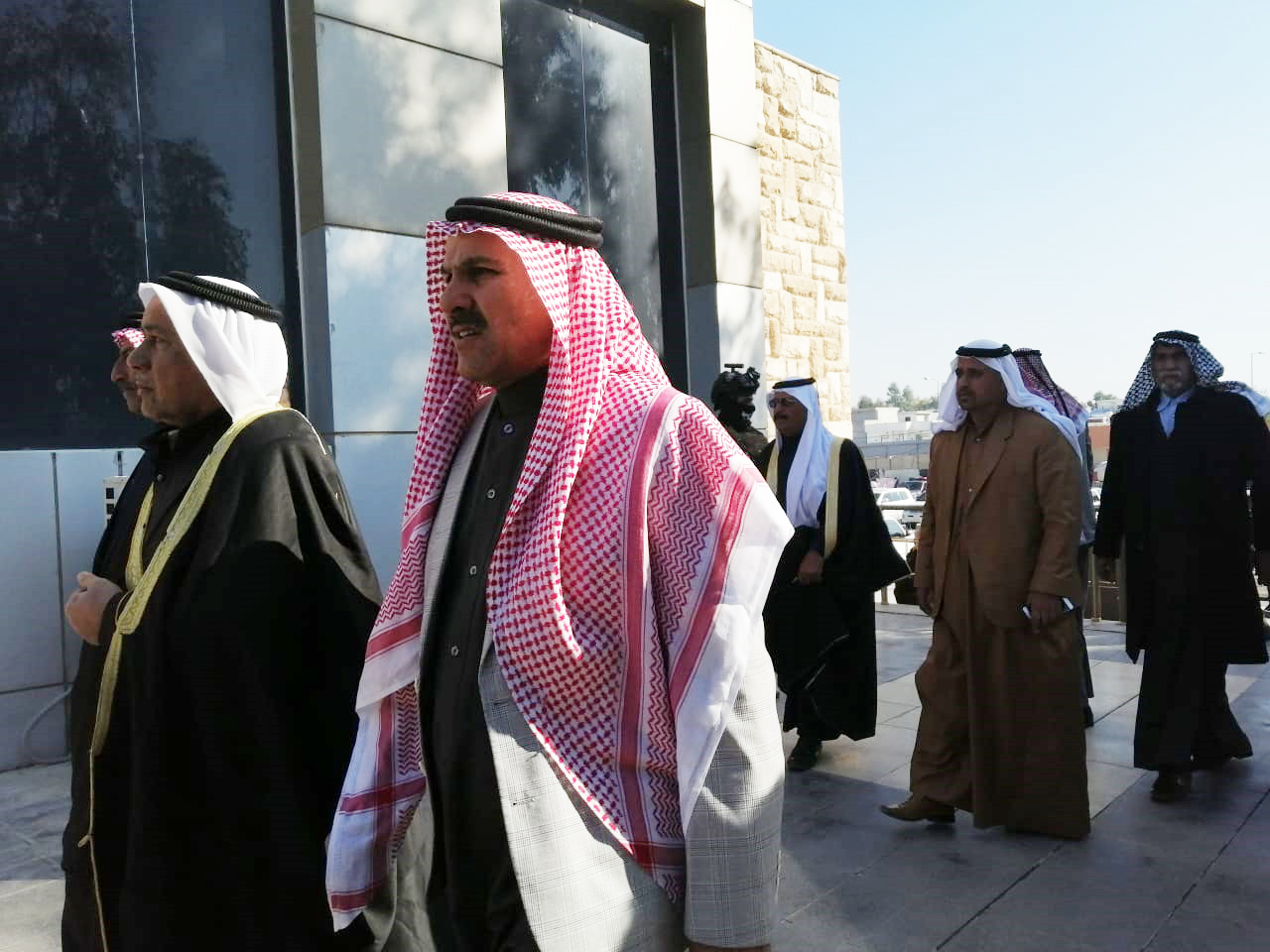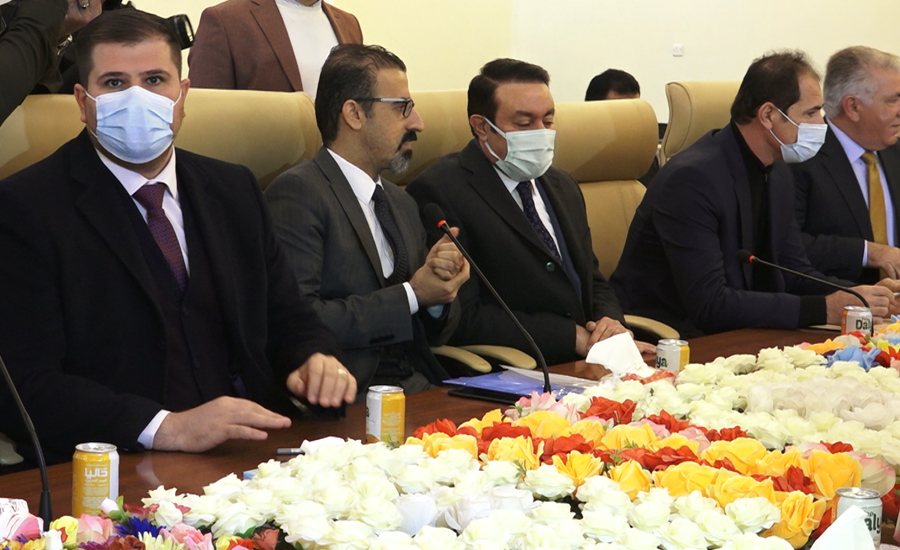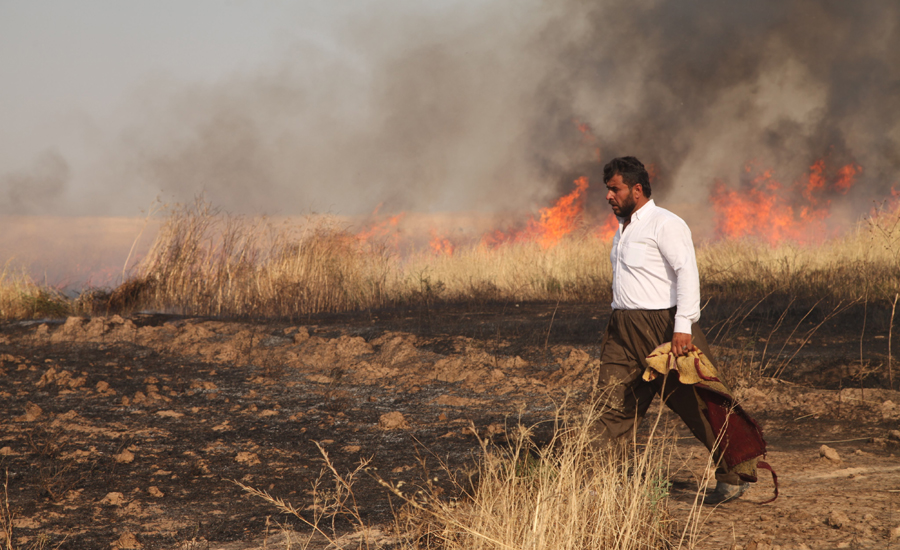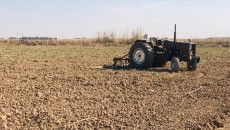In front of the closed door of a room, tens of Kurdish and Arab farmers wait to be let inside, each holding several documents. They seek a resolution to an issue that dates back to 40 years in Iraq’s history and is tied to the lives and livelihood of tens of thousands.
Resolving the landownership dispute in Kirkuk, which began with the ascension of the Ba’th Party to power in the 1960’s, has been entrusted to a parliamentary committee.
The Kurdish and Arab farmers were eager to hear the views of members of the committee about the dispute, which has existed for decades and at times has led to conflict and tension to the brink of armed clashes.
A delegation from the Iraqi Parliament went to Kirkuk on 28 December to investigate the issue and hear out the farmers.
The delegation, which was led by the head of the Parliamentary Committee for Security and Defence, Muhammad Radha, and included six Kurdish, Arab and Turkmen MPs, held a five-hour meeting with the commander of Kirkuk’s Joint Operations commander, Kirkuk’s governor and farmers from the different components.
The meeting comes after the continued complaints by farmers in Kirkuk’s Daquq and Dibis districts and Laylan subdistrict.

Harém Kamal, a Kurdish member of the Iraqi Parliament, told KirkukNow: “We believe that the rights of the Kurdish farmers have been violated. A long discussion was held, and our conclusion was to collect all the documents through the courts and the agricultural committees and compile them in a report.”
The purpose of the committee is to find a comprehensive solution to the issues that the farmers face. The issue is mainly about who owns those fields.
“The first decision in the meeting was, from today [28 December], to put a stop to all the infringements that have been committed and that no village will be evacuated,” said Kamal.
The first decision in the meeting was, from today, to put a stop to all the infringements that have been committed
Nasir Harki, a Kurdish member of the Parliamentary Committee for Security and Defence, said: “To solve the problems, we will rely on the law and the constitution, and today, we listened to the demands of the farmers from the three communities.”
“We have put out a request for anyone who can provide legal documents and can prove their landownership… that is an important thing for us and will serve [resolving] the issue. We will work on resolving the issue away from conflict and friction,” Harki added.

The latest tension raised by the dispute was at the Fareeq village in Kirkuk’s Daquq district when a number of “Arab settlers” went there and began ploughing some fields and Kurdish farmers started protesting.
The Arab farmers claim to have “certified documents” proving their landownership.
Harki said: “The goal of this committee is to restore the rights of the owners.”
“A large number of the documents are fraudulent. We have asked for a sub-committee to be formed to investigate the documents. Decisions cannot be taken based on false information,” he added.
A large number of the documents are fraudulent. Decisions cannot be taken based on false information
Muhammad Radha, the head of the committee, said after the meeting’s conclusion that they have held a “good” meeting with the tribal chiefs and the concerned authorities. “We have investigated the case closely. We hope that we will get better results in the coming meetings.”
The committee is to prepare a “detailed” report and send it to the Parliament and the Council of Ministers, according to Rébwar Taha, another member of the committee.
“The committee’s task is not easy, because we are dealing with a historical issue,” Taha said.
The landownership dispute intensified after the Federal Government expelled the Peshmerga Forces of the Kurdistan Regional Government (KRG) by force on 16 October 2017, after the latter held a referendum on independence in September that year.
Ahmad Haydar, a Turkmen member of the Iraqi Parliament, said: “This is a historical issue; it is a remainder of the Ba’th Party left to us.”
Determining the ownership of some of those lands is tied to Article 140 of the Iraqi Constitution.
Article 140 of the Iraqi Constitution is meant to determine the fate of Kirkuk province and other areas disputed between the Federal Government and the Kurdistan Regional Government. Its implementation was supposed to have been carried out by the end of 2007 through three stages: normalisation, referendum and consensus. But the process is still stuck in the first stage.
Haydar added: “Our task is to scrutinize the documents and return the rights to the owners, and to compensate those who have lost property.”
Our task is to scrutinize the documents and return the rights to the owners
The Kurdish farmers who were standing in front of the closed conference room, had title deeds with them, and the Arab farmers had ‘agricultural contracts’, which would mean they were leased lands by the government.
One of the Kurdish farmers, Muhammad Ahmad, was allowed to speak in the meeting. After the meeting’s conclusion, he said: “We have seen so many committees that we no longer believe in committees to resolve the issue for us. If you want a problem not to be solved, leave it to a committee.”
“This issue of ours needs a political decision. Those who have the title deeds are the owners of the lands, not falsified agricultural contracts and those from the Ba’th era. Had Article 140 been implemented, we would not end up like this today,” Muhammad Ahmad added.
One of the Arab farmers, Hameed Khalaf, from the Sargaran subdistrict in northwest Kirkuk province, said: “The steps taken by the committee today will disappoint 80% of the Arab farmers.”
“We are not against Kurds. We want to resolve the issue through the law. We consider ourselves rightful owners as well. I have a definitive document from the court that the land is mine, I don’t know how can the committee solve this then,” Khalaf said.






